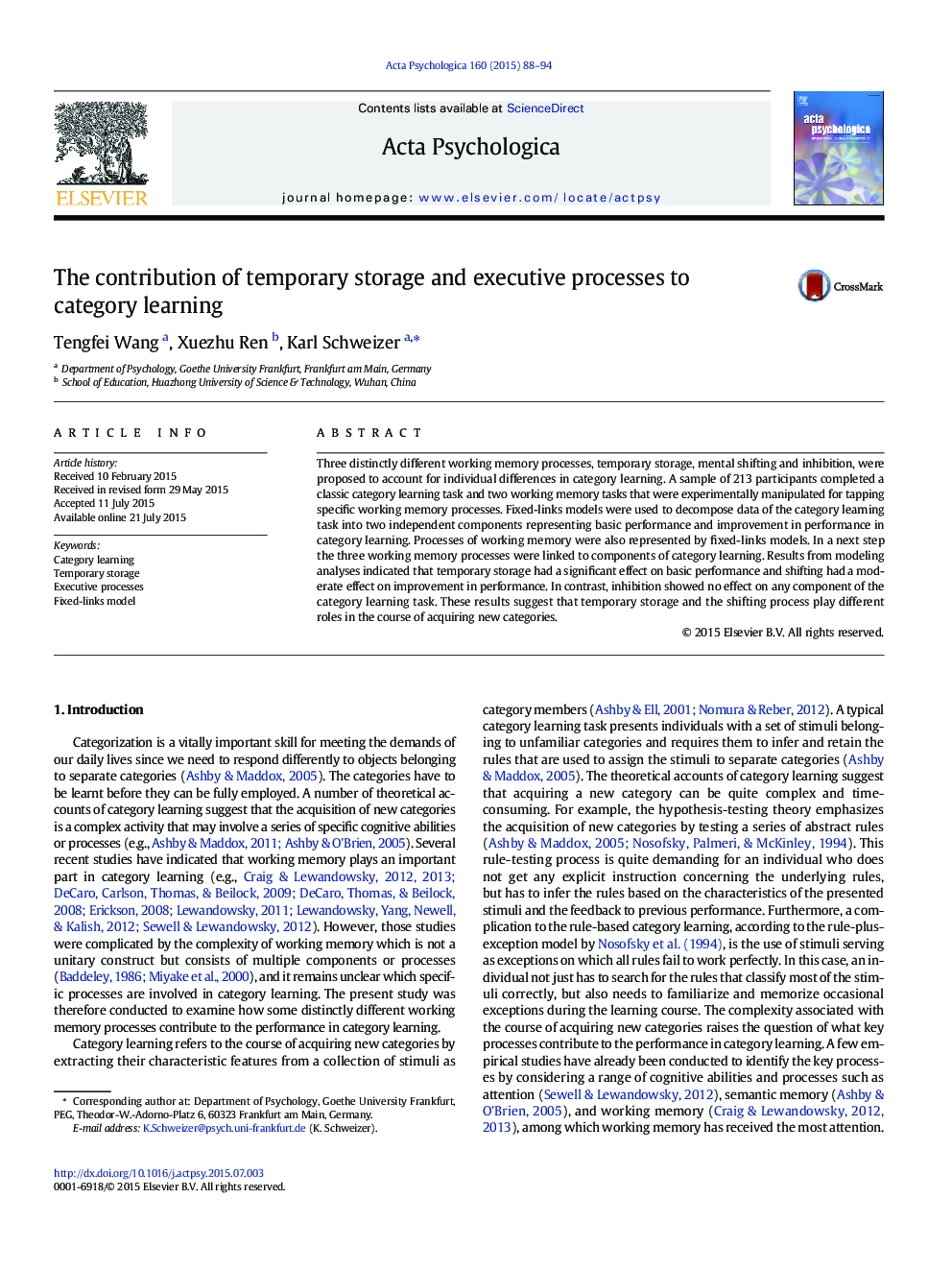| Article ID | Journal | Published Year | Pages | File Type |
|---|---|---|---|---|
| 919683 | Acta Psychologica | 2015 | 7 Pages |
Abstract
Three distinctly different working memory processes, temporary storage, mental shifting and inhibition, were proposed to account for individual differences in category learning. A sample of 213 participants completed a classic category learning task and two working memory tasks that were experimentally manipulated for tapping specific working memory processes. Fixed-links models were used to decompose data of the category learning task into two independent components representing basic performance and improvement in performance in category learning. Processes of working memory were also represented by fixed-links models. In a next step the three working memory processes were linked to components of category learning. Results from modeling analyses indicated that temporary storage had a significant effect on basic performance and shifting had a moderate effect on improvement in performance. In contrast, inhibition showed no effect on any component of the category learning task. These results suggest that temporary storage and the shifting process play different roles in the course of acquiring new categories.
Related Topics
Life Sciences
Neuroscience
Cognitive Neuroscience
Authors
Tengfei Wang, Xuezhu Ren, Karl Schweizer,
